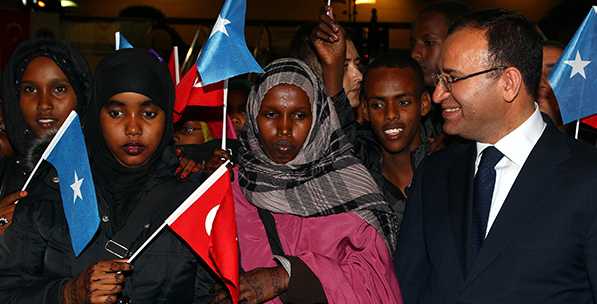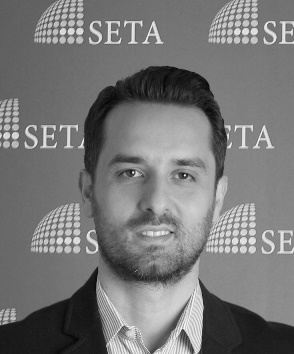Our agenda generally focuses on our near region, it is probably because history runs fast and bloody in this region. If there is a critical domestic policy issue, only then we depart from this agenda. However, foreign policy activities of Turkey continue in distant and different corners of the world. Somalia is the best example of this.
Since it is a country far away from Turkey and since it is not politically much known, our Somali agenda proceeds rather slowly – at least, as far as visual and printed media are concerned. Quite frankly, we do not know Somalia well. Moreover, we are unaware of the strategic value of Turkey’s investment in Somalia.
Although activities of Turkey in Somalia have begun a short time ago in comparison to the Western actors in Somalia, Turkey currently is one of the two most active foreign actors. Along with Turkey’s entry to Somalia, the influence of Britain (the dominant actor in this country) has started to diminish and Britain has become an actor in competition with Turkey. This is pointed out by so many Somalians.
AN AIRPLANE LANDS AND…
Both from Somalia and the diaspora, the Somalians whom I met last week in Kenya fantastically and sincerely tell about Turkey’s prelude into Somalia.
An airplane appears in the skies of the Mogadishu Airport, the place forgotten by the world in those days of famine. The plane lands on a runway on which skinny dogs wander around. The gates of the plane open, with the gates so do the hearts of appreciation of the Somalians. Together with his children and work-team, a tall man gets off the plane: His name is Recep Tayyip Erdoğan, the Prime Minister of a Muslim country, Turkey. As he stretches his hand of brotherhood, he is the man who makes cry the Somalians who have no strength to cry.
Somalians love Erdoğan so much that they closely follow all of the developments centered on the “hostility against Erdoğan”, from the Gezi Protests to the row on the issue of tutoring centers. As Abdülkadir Selvi of the Yenişafak daily writes, perhaps Somalians are the biggest proof that Erdoğan is not just a Prime Minister.
A TREMENDOUS POTENTIAL EXISTS
With dozens of institutions and non-governmental organizations, from the Foreign Ministry, to TIKA, from the Presidency for Turks Abroad and Related Communities to the Red Crescent, Turkey for a long time has been continuing her works in a difficult region of the world like Somalia.
Although it has been devastated by a civil war and failed to use its resources, Somalia still is a very critical country. The country has geostrategic importance as well because of its location at the entrance of the Red Sea; and with this geographical position, Somalia controls the Suez Canal. Infamous pirates of Somalia are directly linked with the country’s seat at a critical corner of the world, trade in particular. Somalia has always been a critical point of trade throughout the history. The Brits and Italians in particular were involved in grand competition because of this.
Another characteristic of Somalia is its very rich underground resources, and due to the many years of instability, its failure to reap benefits from them. Somalia lies in a region with rich energy sources; it is also a common belief that Somalia has rich, untouched reserves. Works being conducted in this regard carry Somalia to higher ranks in the list of potential oil exporting countries.
As the good qualified manpower is added on top of these resources and opportunities, it is possible to state that Somalia has a bright future ahead of her. When viewed from this aspect, Turkey, on the one side, fulfills her humanly duties in Somalia, and makes long-term investments on the other.
Analyses over Turkish foreign policy that do not make mention of (her efforts in) Somalia are always unfinished. I express my thanks to all those who have spent such tremendous effort (in this policy)…
[Akşam, December 1, 2013]<br
In this article
- Foreign Policy
- Opinion
- 2013
- Britain
- Civil War
- Domestic Policy
- Global Actors | Local Actors
- Istanbul
- May 28-August 20 2013 The Gezi Park Protests
- Muslim
- Prime Minister
- Recep Tayyip Erdoğan
- Red Sea
- Somalia
- taksim
- The President of the Republic of Türkiye
- Turkish Foreign Policy
- Turkish President
- Türkiye's Foreign Policy
- UK
- United Kingdom (UK)
- Western World

